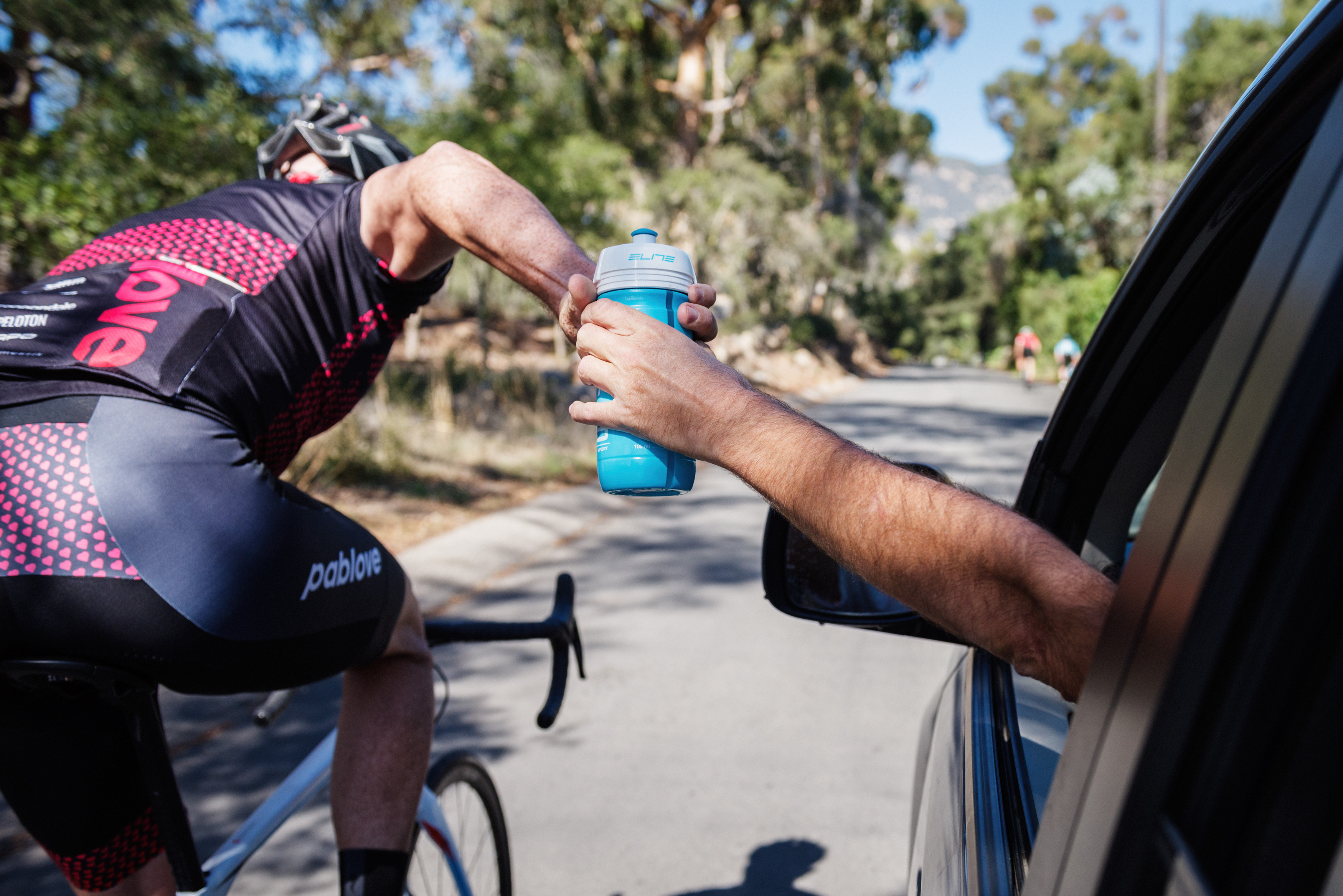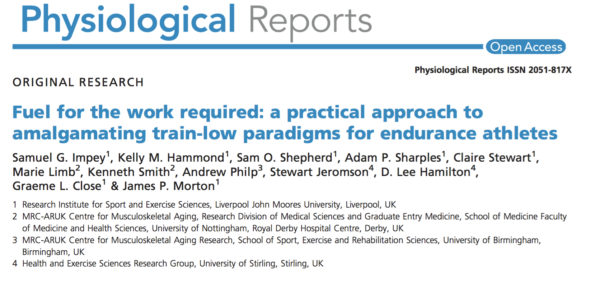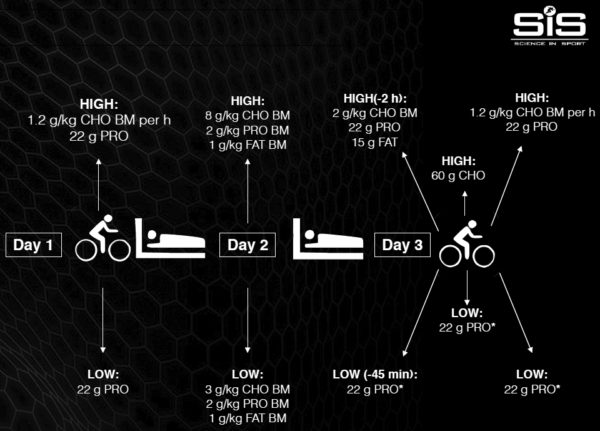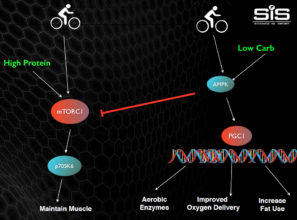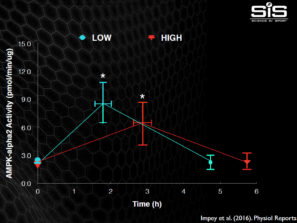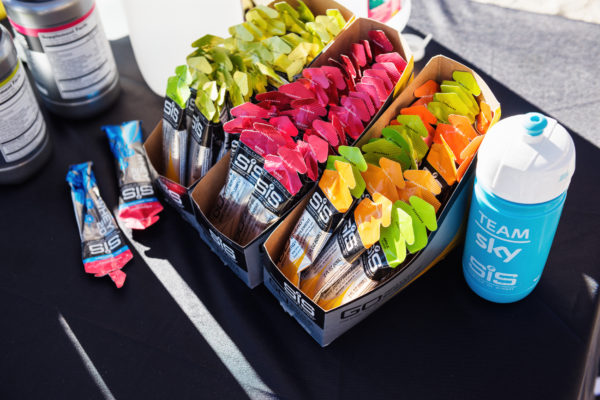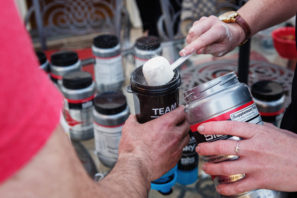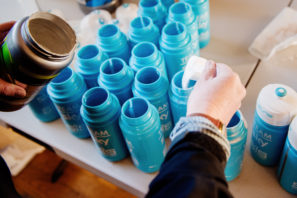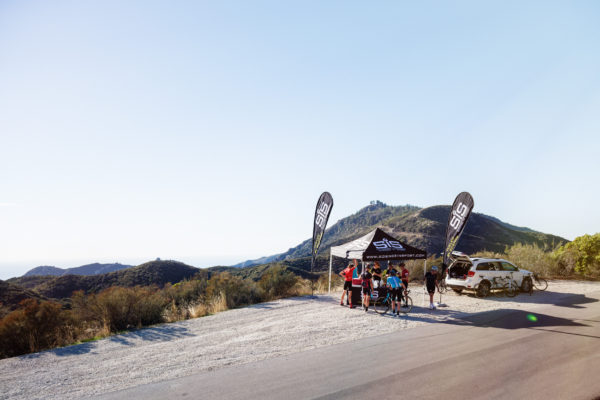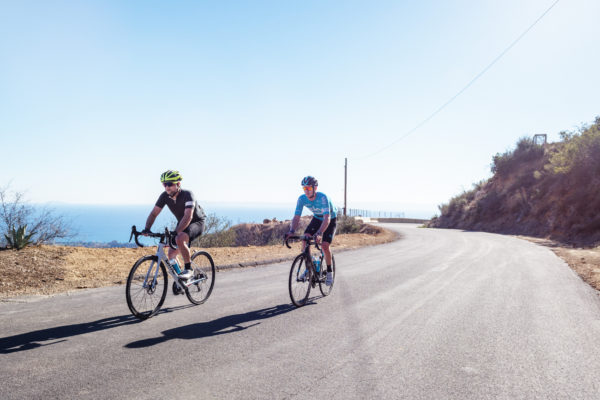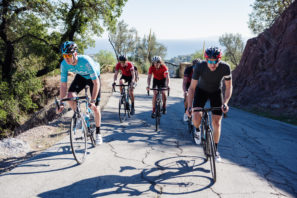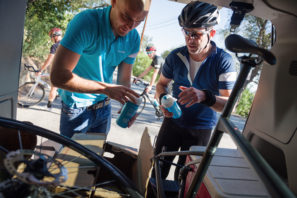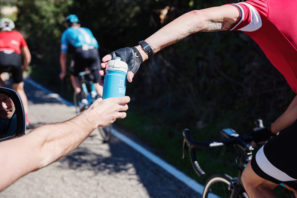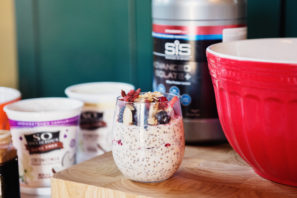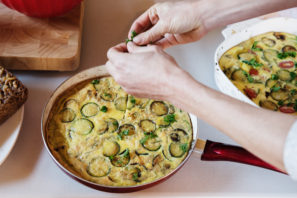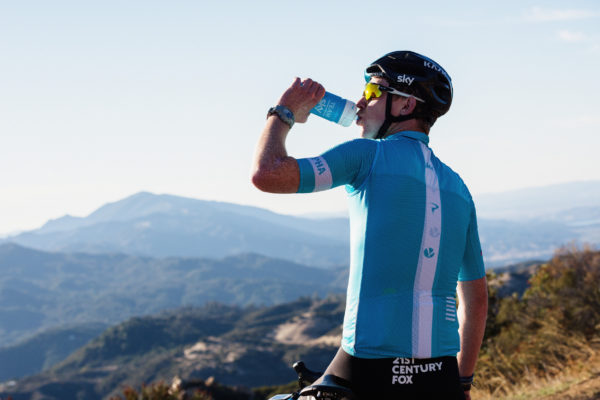
Are you eating for your best performance? That seems like a fairly simple question, but based on the latest science, the answer might surprise you. As cyclists, for years we’ve been told that carbs are king. Want to perform your best for your race tomorrow? Eat pasta the night before the race. But as it turns out, the balance between carbs, fat, and protein might be a bit different than you’ve been taught. Not only the balance, but the timing for each group to obtain your peak performance.
All of this was the subject of a recent even put on by Science in Sport. As the chief nutrition sponsor of Team Sky, SIS plays a critical role in the performance of their star athletes like Chris Froome, but there’s a lot more to the story than gels and protein powder. Real food is just as important as prepackaged performance nutrition, but it’s also not as simple as eating healthy and bumping up the carbs for race day.
To ensure that their team performs at their peak, Team Sky brought in renowned sports nutrition expert, Dr. James Morton. A researcher at Liverpool John Moores University, Dr. Morton also lends his services to other sports including boxing, Premier League football teams, and MMA. While each of those sports have unique nutritional needs for athletes to perform their best, Dr. Morton says nutrition presents a uniquely important role in cycling, and in a way that is still evolving…
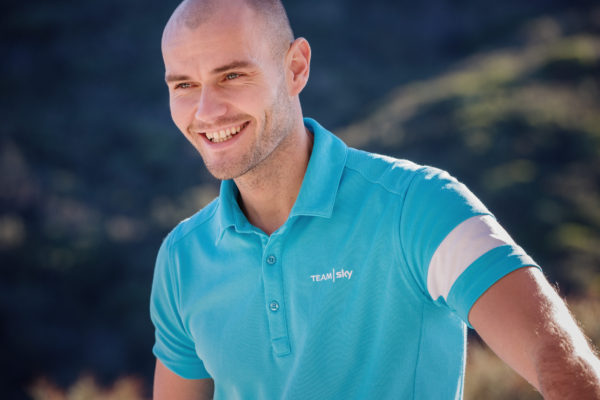
In order to better understand your nutritional needs, Dr. Morton starts with how your body actually gains its fuel and from what sources. When you’re riding, you have essentially three sources of energy (glycogen) – your liver (100g), your skeletal muscle (400g), and adipose tissue, or fat which has a much higher level of energy at 5-10kg depending on your weight. While you have some control over the energy sources, a lot of it depends on exercise intensity and duration, nutrient availability, and how fit you are. Dr. Morton used Froome as an example and given his incredible VO2 max and threshold power, putting out a 250w effort for Froome is equivalent to going for a walk. For someone like me, that would be a completely different story.
Essentially, Dr. Morton points out that fat can provide fuel for moderate intensity rides, but carbs are still the best for high intensity efforts. The key seems to be to train your body to run on both fuel sources so that you can draw from your fat stores for energy, but keep the ability to burn carbs efficiently at the high end of your performance. This where Dr. Morton got into performance vs. training adaptation nutrition, and is one of the areas he feels many riders get it wrong. By consuming 8-10g per kg of body weight of carbs the night before a ride or race, you’re topping up your liver and muscle glycogen stores, but you’re doing nothing for training adaptation. Instead, he proposes that you switch to a low carb training program because it switches on the molecular pathways to muscle burning more quickly.
This theory was tested through a research paper of which Dr. Morton was a part of through Liverpool John Moores University, among other research centers. Stating that the entire research project cost $50,000 to complete, Fuel for the work required: a practical approach to amalgamating train-low paradigms for endurance athletes put textbook sports nutrition up against low carb/high protein diets for training adaptation purposes. What they found was a correlation between low carb training and how quickly the benefits of training were realized. The athletes on the low carb programs could activate aerobic enzymes more quickly and improved oxygen delivery and increased fat use.
However, there does seem to be a magic window for training adaptation. Training with glycogen levels too low will result in you physically not being able to train properly, but too high and the desired pathways won’t be switched on. Training too low will also result in your body ‘forgetting’ how to process carbs as fuel on race day. For ideal training, the team settled on 200-400 mmol/kg. An important note of the testing, was that with the low carb training, protein was also very important. Without protein added to their diets, athletes in the study lost muscle mass, so in order to retain benefits of training and keep muscle mass, Dr. Morton recommends keeping protein to roughly 0.3g/kg of body mass. Protein should be kept under 2g/kg to keep lean muscle, and high fat diets should be shunned to prevent the body from losing its ability to run on carbs during a race. This all funnels into the title of the study, ‘Fuel for the work required.’ According to Dr. Morton, you should be eating differently for race day than you should be for training day due to a number of factors.
On the bike during race day situations, fueling changes back to the typical school of thought where carbohydrate is king. Estimating that riders should be using 60-90g/hr, that would mean one of the SIS Isotonic energy gels every 20 minutes. Interestingly, he recommends a caffeine energy gel 30 minute before a tough climb. Consuming carbs during exercise tested to dramatically increase endurance performance for a number of reasons compared to a placebo. But Dr. Morton points out that it’s important to consume plenty of fluids (about 500ml per hour, or to thirst), and protein as well. During our rides in Santa Barbara with Team Sky member Ian Boswell and SIS nutrition, we started off with a protein drink in our bottle for the first part of the ride. While this was a bit odd, Dr. Morton said it provides your muscles protein to keep from breaking down since this was a training ride and not a race. Protein is also acceptable right before bed which can help prevent your body from breaking down muscle while you sleep.
Protein is also equally important immediately following a workout. Consuming something like SIS Rego Rapid Recovery immediately after exercise provides fuel for muscle glycogen re-synthesis, muscle repair, and of course rehydration. Dr. Morton says the window should be about 30 minutes after exercise, but the levels of muscle glycogen drop dramatically if you feed more than two hours after a ride. Ideally, you should consume 1.2g/kg of protein to body weight post exercise which is usually 30-40g. It’s also apparently important to include fructose in recovery drinks (like a fruit smoothie) as fructose plays a direct role in replenishing your liver glycogen stores. As to replacing fluids, Dr. Morton suggests replacing body mass loss in liters of fluid by 150% to get rehydrated.
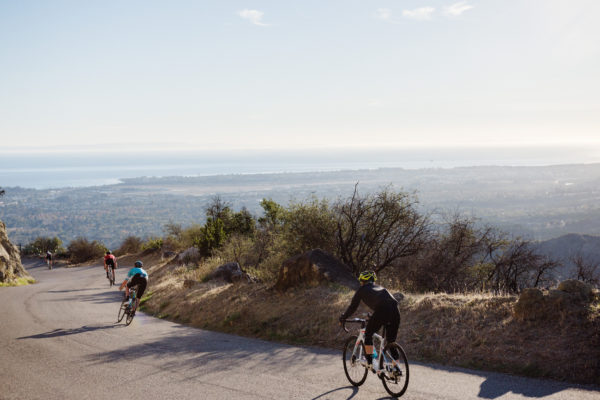
If this seems like a huge amount of science to digest, don’t worry, you’re not alone. Essentially, we were given a crash course in Team Sky’s nutrition program, and taken out for a challenging ride up Gibraltar road in Santa Barbara, CA. During the trip we were treated to a similar nutritional program as Team Sky would see during training, and at least the short term results were easy to see.
Admittedly, this would be hard to replicate for the average rider (unless you have a meal truck and personal chef/nutritionist waiting for you at the finish of every ride). Much of this science was done specifically to help keep racers at their peak performance over the course of a grueling grand tour. But just because you’re not on Team Sky doesn’t mean you can’t benefit from much of this research. When asked what the average cyclist could do to improve their performance and nutrition, Dr. Morton said to simply reduce carbs during training. Too many carbs mean riders are carrying around too many kilos on their body, and he pointed out that losing weight is an easier way to go faster than upgrading your wheels.
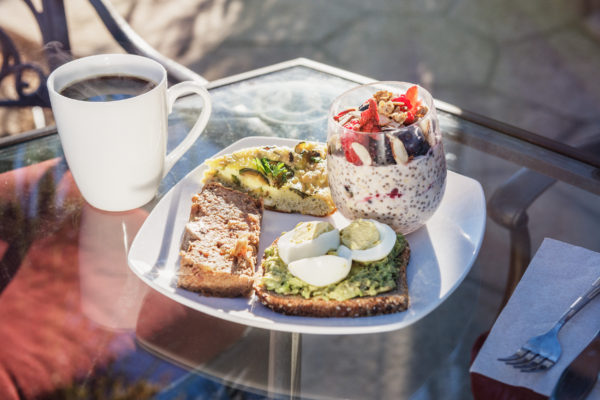
It’s probably important to also point out that Team Sky places an equal level of importance on real food as they do nutrition products. While most of us won’t have a professional chef on standby, we got a little taste of pro performance grub whipped up by Lottie Bildirici and Mary Miller. By balancing solid nutrition with carbohydrate periodization (or eating for the work required), along with a high protein diet, Dr. Morton feels many of us can achieve a higher level of performance without needing our own nutritionist. After all, there seems to be a lot to gain from modifying your nutrition alone, and you don’t have to be a pro cyclist to see the benefit in that.
